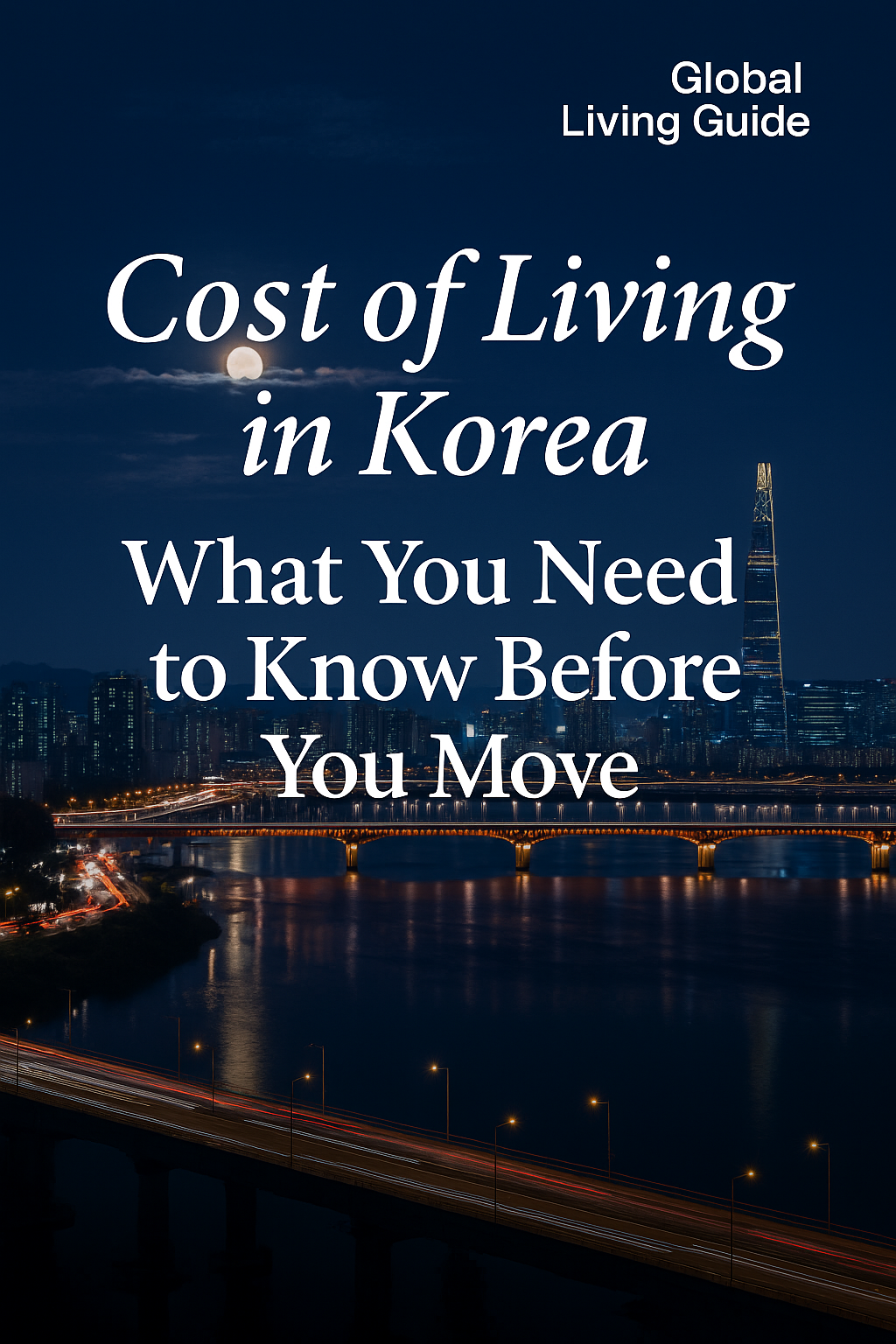Moving to a new country requires more than just cultural preparation—it demands financial readiness. For anyone planning to live in Korea, understanding the true cost of living is essential to avoid surprises and plan a sustainable lifestyle. This guide breaks down the major expenses and gives you a realistic picture of life in Korea as a foreigner in 2025.
1. Monthly Housing Costs
Housing will likely be your biggest expense. Korea’s rental market offers various options:
- One-room studio apartment: $350–$600/month
- Two-bedroom in major cities: $800–$1,200/month
- Deposit system (Jeonse): Lump sum $50,000–$300,000, no monthly rent
Many expats opt for monthly rent (wolse) rather than Korea’s unique “jeonse” system. If you choose wolse, expect to pay a deposit of $2,000–$5,000 upfront, with monthly payments.
2. Food and Groceries
Food expenses can vary significantly based on your lifestyle.
- Eating out at local restaurants: $5–$10 per meal
- Western food: $12–$20 per meal
- Monthly groceries (for one person): $250–$400
Street food is affordable, but imported goods (cheese, wine, cereal) can be pricey.
3. Public Transportation
Korea has one of the most efficient and affordable public transit systems in the world.
- Subway fare: ~$1.20 per ride
- Bus fare: ~$1.10 per ride
- Monthly transport card: ~$50–$70
Taxis are inexpensive compared to Western standards, but still more costly than public options.
4. Health Insurance and Medical Expenses
Foreigners with long-term visas are required to enroll in Korea’s National Health Insurance Service (NHIS).
- Monthly NHIS premium: ~$100–$120 (individual)
- Doctor visit with insurance: ~$5–$10
- Without insurance: $30–$70 per visit
Private insurance is available but optional.
5. Utilities and Internet
- Electricity + gas + water: $80–$130/month
- Mobile plan: $30–$60/month
- High-speed internet: ~$25–$35/month
6. Lifestyle and Entertainment
- Gym membership: $30–$70/month
- Coffee (café): $3–$6
- Movie ticket: ~$9
- Night out (drinks + meal): $25–$50
Korea is social, but frequent outings can add up quickly.
7. Monthly Budget Summary (for a single person)
| Category | Estimated Cost (USD) |
|---|---|
| Housing | $500–$1,200 |
| Food & groceries | $300–$500 |
| Transport | $50–$70 |
| Utilities & Internet | $120–$160 |
| Health insurance | $100–$120 |
| Leisure & other | $100–$250 |
| Total | $1,170–$2,300 |
Key Takeaways
- Korea offers a relatively affordable lifestyle compared to major Western cities.
- Living outside Seoul can reduce housing costs by 30–40%.
- Being financially informed before arriving will reduce stress and improve your experience.
If you’re considering Korea in 2025, this guide helps you plan with confidence and clarity.
